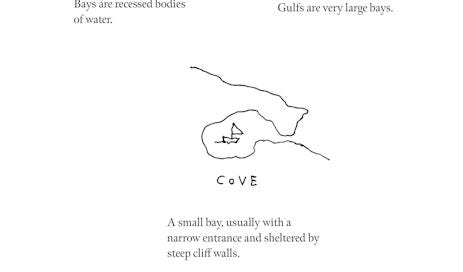I recently reviewed Dictionary of Fine Distinctions, which everyone seemed to love except for me. Its illustrations were playful and the entries were often informative, but I found myself bored. The idea of the book—that is, telling people about the book—was more fun than actually reading it.

Nevertheless, I got to re-read a delightful DFW essay to prepare my review’s opening:
In his essay “Authority and American Usage,” David Foster Wallace defines a “SNOOT” as “a really extreme usage fanatic, the sort of person whose idea of Sunday fun is to hunt for mistakes” in a weekend column. He argues SNOOTitude runs in families, and SNOOTs generally find listening to most people’s public English “like watching somebody use a Stradivarius to pound nails. We are the Few, the Proud, the More or Less Constantly Appalled at Everyone Else.”
I admit to a little family SNOOTitude.
This was a more playful review than usual, and I hope it delivered on some of the fun promised by the book’s premise. Because this book didn’t end up addressing some usage questions that nag me, I looked into some words that always trip me up:
Home in or Hone in?
Home in. (Think: A pigeon homes in). Because we talk about “honing” an argument not merely a blade, the idea of precision and honing in seems to fit. But it’s home as in a homing pigeon that is both more accurate and traditional.
Champing or Chomping at the bit?
Champing. Champing refers to anxious, restless chewing commonly seen in horses. Chomping is more about force and noise level than emotional state. Before the Derby, you’re champing. When the oats come out, you’re chomping.
Forte (“For-tay” or “Fort”)?
The aforementioned DFW essay is a review of Bryan Garner’s A Dictionary of Modern American Usage. Garner’s definition of a “skunked term” applies to forte:
When a word undergoes a marked change from one use to another…it’s likely to be the subject of dispute. Some people (Group 1) insist on the traditional use; others (Group 2) embrace the new use…Any use of [the word] is likely to distract some readers. The new use seems illiterate to Group 1; the old use seems odd to Group 2. The word has become “skunked.”
In this case, it’s the word’s pronunciation rather than its meaning that is skunked. Some will argue, “That’s really not his forte” is a usage derived from the French word for strength not the Italian word for loud (as in musical notation) and thus should be pronounced “fort.”
But much like the “correct use” of “begging the question”—which is the logical fallacy of assuming the conclusion in your premise, not a replacement for “raising the question”—being right will likely leave your listener confused.
Use at your own peril.
Coming down the pike or pipe?
Pike, as in road. (Think: New Jersey Turnpike). You see something coming down the road. If it’s in a pipe, how can you see and worry about it?
Jerry-rig or Jury-rig?
Jury-rig predates jerry-rig, but both words in jury-rig are not being used in their modern sense.
Here, jury is being used as an adjective meaning “makeshift” and rig refers to preparing a ship. (Think: a ship has “rigging”). So rather than 12 jurors fixing a case, imagine a patchwork sail hoisted on a raft.
Feel free to chime in with any SNOOTy comments.






